When it comes to getting a good night’s sleep, your pillow choice can make or break it. You might not realize it, but the way you sleep—whether you’re a side sleeper, back sleeper, or stomach sleeper—can determine the type of pillow that’s best suited for your comfort and support. In this guide, we’ll explore the best pillows for different sleeping positions and explain how finding the right one can reduce neck pain, improve sleep quality, and even help with health conditions like sleep apnea.
Choosing the right pillow for your sleep position isn’t just about comfort; it’s also about your health. Incorrect support can lead to poor spinal alignment, causing issues like shoulder pain, neck stiffness, and even exacerbate sleep disorders. Let’s dive into how you can match the best pillow to your preferred sleeping style.
(Affiliate Disclosure: This article contains affiliate links, which means we may earn a small commission if you click through and make a purchase, at no extra cost to you. However, we only recommend the best products that we genuinely believe will add value to your health journey. For more details, please read our full Affiliate Disclosure. #ad)
- Why Does Your Sleep Position Matter?
- Best Pillows for Side Sleepers
- Best Pillows for Back Sleepers
- Best Pillows for Stomach Sleepers
- Best Pillows for Travel
- Best Pillows for All Sleep Positions
- Final Thoughts on Choosing the Best Pillow for Different Sleeping Positions
Why Does Your Sleep Position Matter?
Your sleep position plays a critical role in your overall sleep quality and long-term health. When you sleep, your spine should ideally maintain its natural curve, ensuring that your head, neck, and back are aligned. Misalignment during sleep can lead to a host of problems, including chronic pain, muscle stiffness, and even breathing issues like sleep apnea.
Each sleeping position places unique demands on the body, which is why it’s so important to choose the right pillow to meet those needs. Let’s break down why your sleep position matters and how it can affect your health:
1. Spinal Alignment
Spinal alignment is crucial for preventing back and neck pain. When your spine is aligned, it relieves pressure on your vertebrae and muscles, allowing your body to fully relax and recover during the night. Poor pillow support can force your neck into awkward angles, which strains the muscles and ligaments. Over time, this can lead to chronic pain and exacerbate conditions like cervical spondylosis or herniated discs.
For example, side sleepers need a pillow that is firm and high enough to fill the space between the mattress and their head, keeping the neck aligned with the spine. Back sleepers, on the other hand, need a pillow that offers moderate support to cradle the neck without lifting the head too high. This difference in needs explains why one type of pillow won’t work for everyone.
2. Pressure Points
Different sleeping positions place varying levels of pressure on certain parts of the body. Side sleepers, for instance, put significant pressure on their shoulders and hips, which can lead to pain and discomfort if not properly supported. A firmer pillow is needed to relieve pressure on these areas while keeping the head level with the spine.
In contrast, stomach sleepers tend to place pressure on the lower back, as the body’s weight isn’t evenly distributed in this position. A very soft, low-loft pillow is often best for stomach sleepers, as it minimizes strain on the back and neck by allowing the head to lie closer to the mattress. The American Chiropractic Association recommends avoiding stomach sleeping altogether if possible, as it can lead to severe back and neck pain.
3. Breathing and Airway Health
Your sleep position can also impact your ability to breathe easily at night. Sleeping on your back, for example, can cause the tongue and soft tissues in the throat to collapse into the airway, increasing the likelihood of snoring or obstructive sleep apnea. For individuals who experience sleep apnea, using a pillow designed to elevate the head—such as a wedge pillow—can help open the airway and reduce breathing interruptions during sleep (source: National Sleep Foundation).
Side sleeping, particularly on the left side, is often recommended for people with breathing issues like acid reflux or sleep apnea, as this position helps keep the airways open. A firm, supportive pillow can ensure proper head and neck alignment, reducing the risk of airway obstruction.
4. Impact on Specific Health Conditions
Certain health conditions are directly affected by your sleep position and pillow choice. For example, people with acid reflux may benefit from sleeping on their left side with an elevated head, as this position helps prevent stomach acid from rising into the esophagus. Similarly, those with shoulder pain may need a specialized pillow that supports both the head and shoulder, preventing the arm from collapsing under the body during sleep. The Cleveland Clinic suggests that side sleepers dealing with shoulder pain look for pillows that provide extra cushioning and height to protect the shoulder joint.
For pregnant women, sleep position is also critical. Sleeping on the left side is often recommended to improve blood circulation to both the mother and the baby. A pregnancy pillow can provide full-body support, cradling the head, neck, back, and belly for maximum comfort and safety during sleep.
In short, your sleep position directly influences how your body rests and repairs itself overnight. The right pillow can make all the difference by keeping your spine aligned, reducing pressure points, and even improving breathing. That’s why it’s essential to choose the best pillow for your sleep position, whether you’re a side sleeper, back sleeper, or stomach sleeper.
Best Pillows for Side Sleepers
Side sleeping is the most common sleep position, with approximately 60% of adults preferring it. Side sleepers require a firmer, loftier pillow to fill the gap between their ear and shoulder. This ensures proper spinal alignment and reduces pressure on the shoulders and hips.
Best Pillow for Side Sleeper Shoulder Pain
If you’re a side sleeper struggling with shoulder pain, look for pillows designed to provide extra support to this area. Memory foam pillows are a great option because they conform to the shape of your head and neck while offering firm support. A high-quality option like the Tempur-Pedic Side-to-Side Pillow is a popular choice. The extra loft keeps the head supported and prevents the shoulder from collapsing under the body.
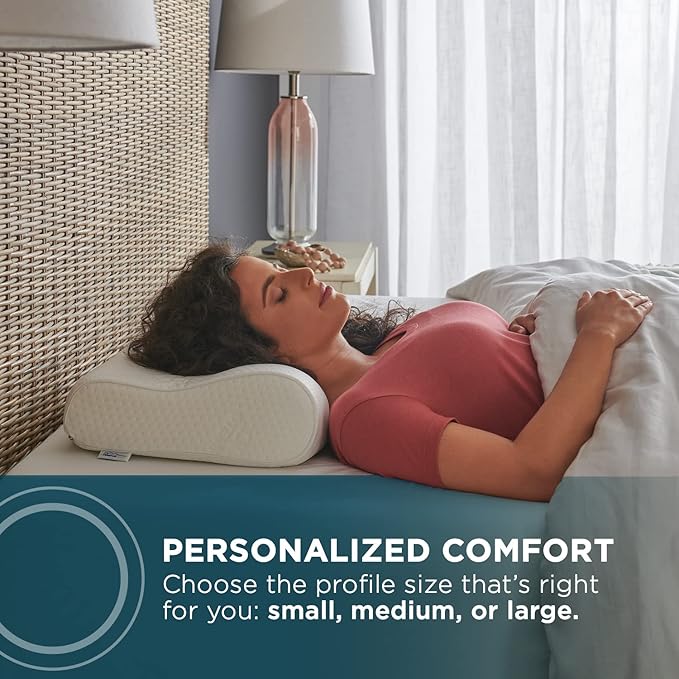
Pillow for Side Sleepers with Neck Pain
Side sleepers often struggle with neck pain, particularly if the pillow isn’t high enough to keep the neck aligned with the spine. A contour pillow, made with memory foam or latex, can provide firm neck support while allowing your head to sink in just enough. For maximum neck support, look for options like the Cervical Pillow, which is designed specifically to support neck alignment for side sleepers.

Best Side Sleeper Leg Pillow
Side sleepers might also benefit from using a leg pillow. This is a small pillow placed between the knees to help keep the spine aligned and reduce pressure on the lower back and hips. If you’ve never tried one, the Knee-T or a wedge pillow can provide that extra boost to your side-sleeping setup.
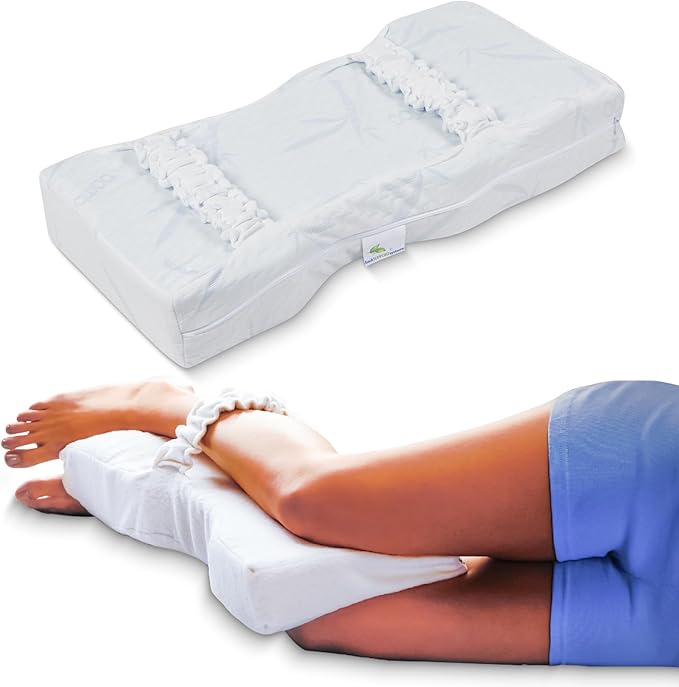
Best Pillows for Back Sleepers
Back sleepers need a pillow that provides balanced support under the neck without pushing the head too far forward. A medium-firm pillow with a lower loft is ideal, ensuring that the head is elevated just enough to maintain a neutral spine position.

Best Pillow for Back Sleepers with Neck Pain
Back sleepers prone to neck pain should consider memory foam or cervical pillows that cradle the neck without flattening out. A shredded memory foam pillow like the Coop Home Goods Adjustable Pillow is customizable and allows you to add or remove filling to get the perfect height for neck alignment.
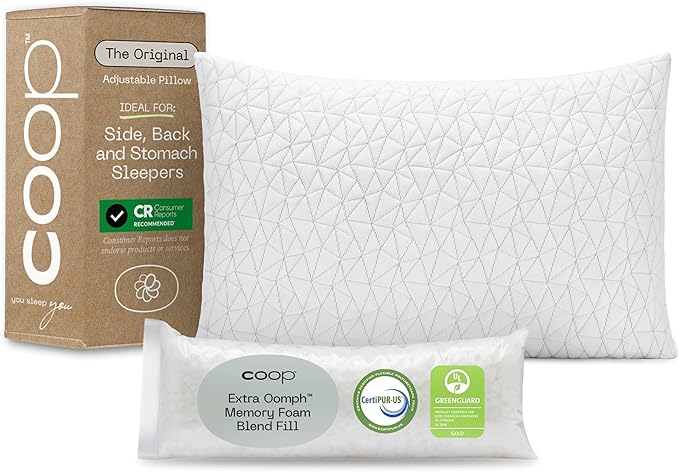
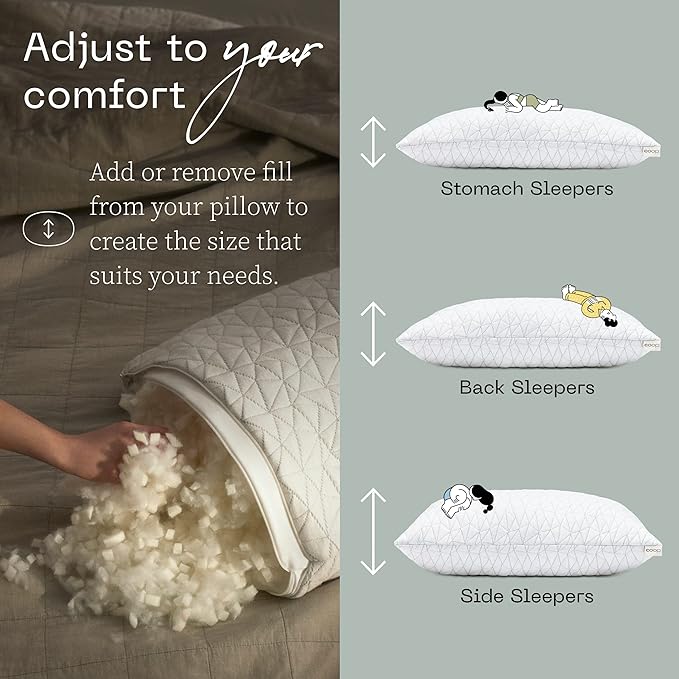
Best Wedge Pillow for Sleep Apnea
For back sleepers suffering from sleep apnea, a wedge pillow can be a game-changer. These pillows elevate the upper body, helping to keep the airway open and reducing the likelihood of snoring and apnea episodes. The MedCline Wedge Pillow is an excellent choice for people with sleep apnea.
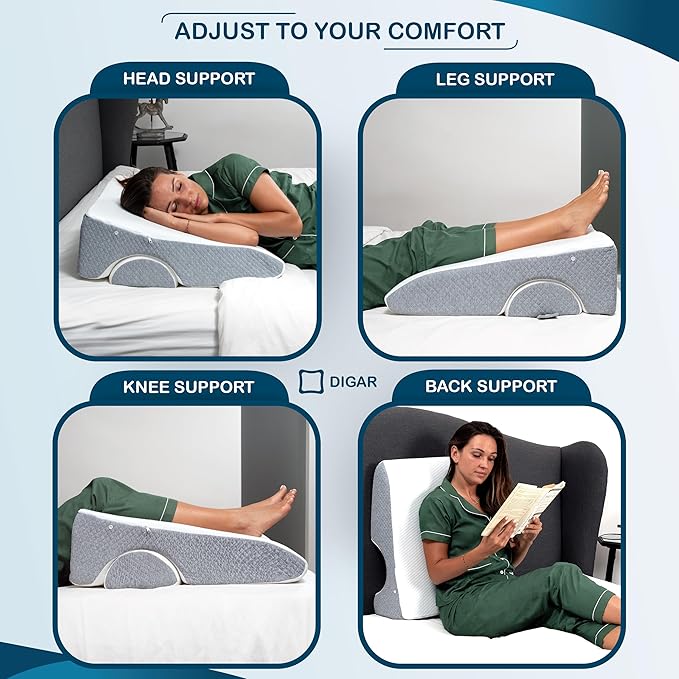
Best Pillows for Stomach Sleepers
Although only a small percentage of people sleep on their stomachs, this position places a lot of strain on the neck and back. A soft, low-loft pillow is crucial to prevent the neck from craning too far upward. The best pillow for stomach sleepers is typically flat and soft, allowing the sleeper’s head to rest closer to the mattress while maintaining a neutral spine.
Best Pillow for Stomach Sleepers with Neck Pain
Stomach sleepers often suffer from neck pain due to poor positioning. To minimize discomfort, try a down-alternative pillow, which compresses easily and keeps your neck aligned with the rest of your spine. Look for options like the Brooklinen Down Pillow, which offers both softness and support.
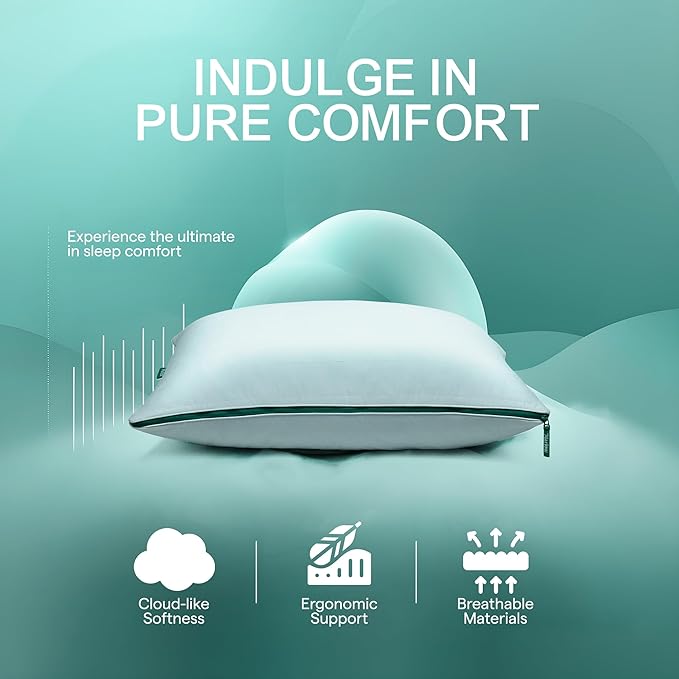
Best Pillows for Travel
When it comes to travel, comfort and support are paramount. Travel pillows are designed to keep your neck supported while you sleep upright, whether in an airplane seat or car.
Best Neck Pillow for Travel
The best neck pillow for travel is one that cradles the neck and prevents it from drooping forward or to the side. Memory foam pillows that mold to the shape of your neck are ideal. A popular option is the Cabeau Evolution Classic Travel Pillow, which offers 360-degree support for travelers. If you’re a frequent flyer, investing in a high-quality neck pillow can prevent post-travel aches and ensure a more restful trip.

Best Airplane Pillow
For air travel, consider a U-shaped pillow that provides support around the neck, keeping your head from bobbing side to side during sleep. Look for one that compresses easily for storage but offers firm support. Many travelers swear by the Trtl Pillow for long-haul flights because it offers ergonomic support while being lightweight and easy to pack.

Best Pillows for All Sleep Positions
If you’re someone who constantly shifts during the night, it can be hard to find a pillow that fits every position. A hybrid pillow that adapts to both back and side sleeping is ideal.
Best Pillow for All Sleep Positions
The best pillow for all sleep positions needs to be adaptable and supportive across the board. Shredded memory foam pillows are a fantastic option because they are moldable and adjustable. The Purple Harmony Pillow is one of the top-rated pillows for multi-position sleepers, offering both support and flexibility with its innovative design.
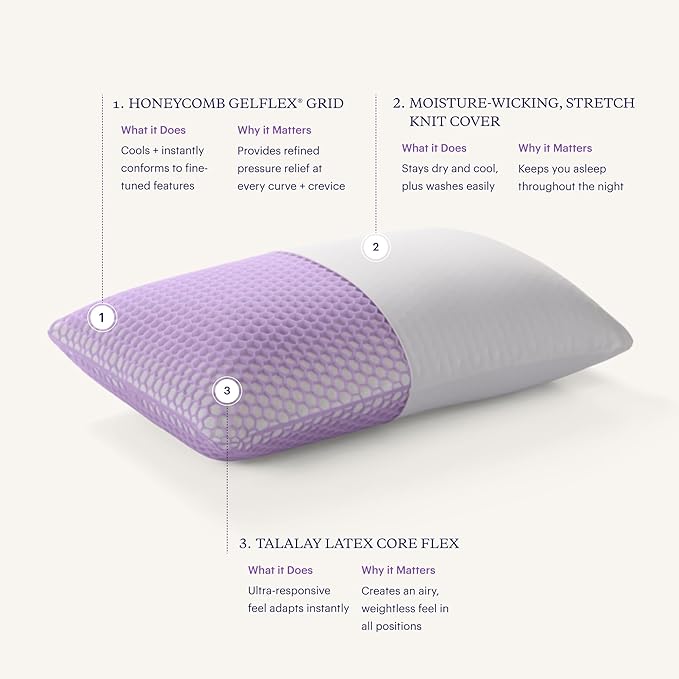
Adjustable Pillows for Changing Sleepers
Adjustable pillows, like the Sleep Number ComfortFit Pillow, are excellent for those who switch between sleeping positions. You can add or remove filling to customize the firmness level, ensuring that your neck and spine are always properly supported no matter how you sleep.
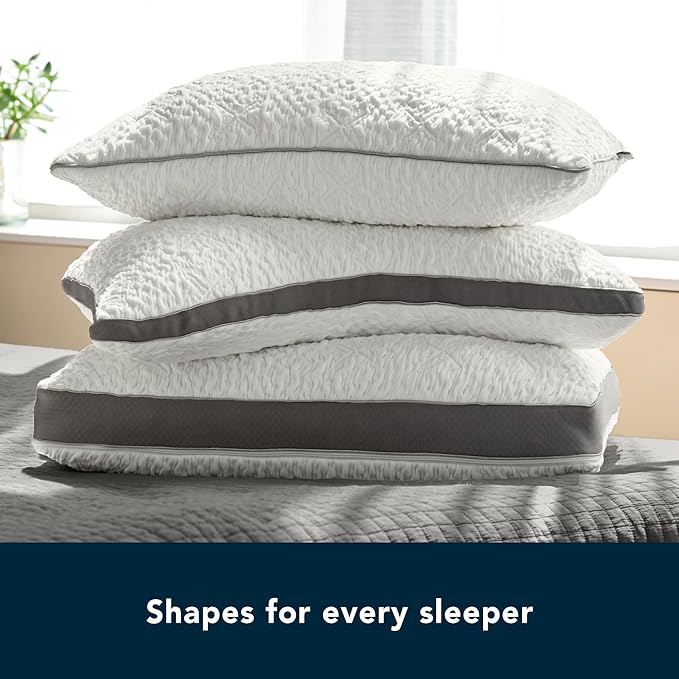
Final Thoughts on Choosing the Best Pillow for Different Sleeping Positions
Finding the best pillow for different sleeping positions isn’t a one-size-fits-all process, but investing in the right pillow can make a world of difference in your sleep quality and overall health. Whether you’re a side sleeper dealing with shoulder pain or a stomach sleeper who needs a soft, low-loft pillow, there are pillows designed specifically to meet your needs.
Ultimately, a good pillow should promote healthy spinal alignment, provide sufficient support for your neck and shoulders, and relieve pressure points no matter your sleep position. By making an informed choice based on your preferred sleeping posture, you can wake up feeling refreshed and pain-free. And remember, quality sleep doesn’t just happen—it’s built on the right foundation, starting with your pillow.
By choosing the right pillow, you’re taking the first step towards a healthier, more restful night’s sleep!

Leave a Reply